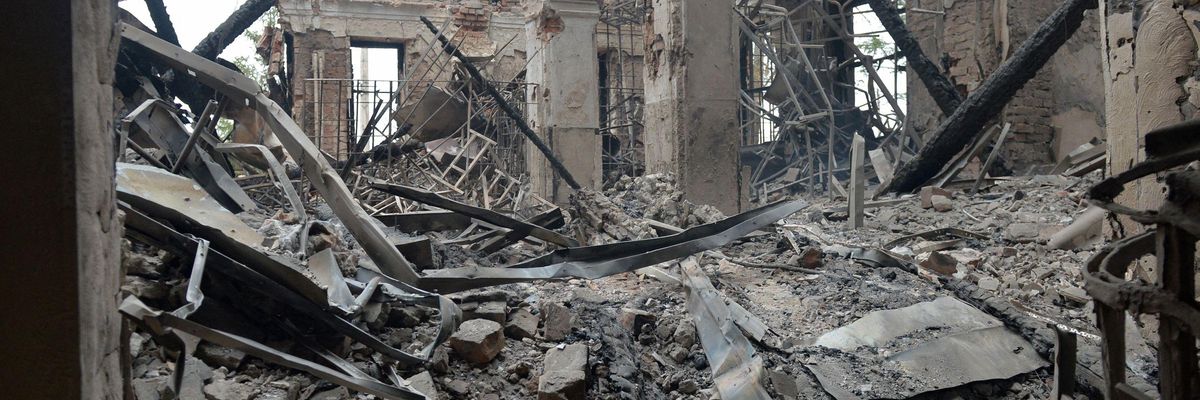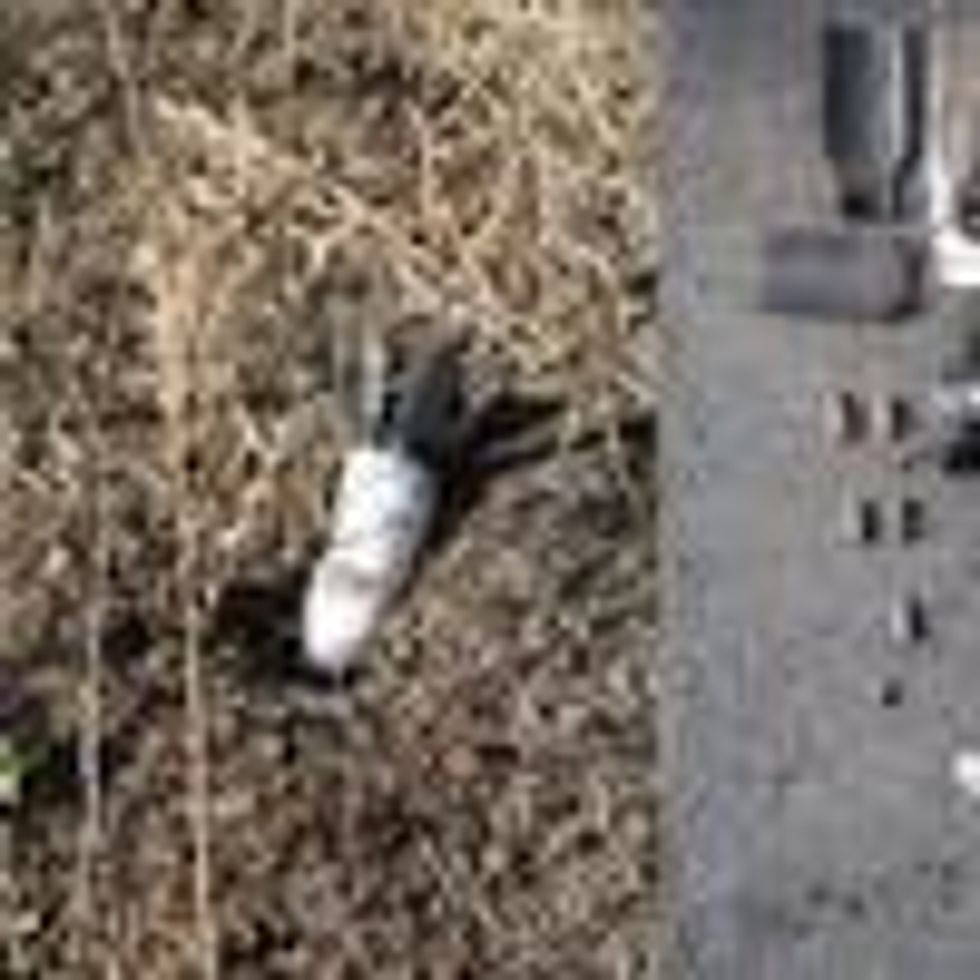Russia's Monday bombing of Ukraine's second-largest city involving the suspected use of cluster munitions and the alleged targeting of civilian infrastructure drew outrage as the military assault showed no signs of waning on its fifth day.
The death toll from the strikes on the eastern city of Kharkiv--which came amid peace talks between Ukrainian and Russian delegations--was unclear, with some Ukrainian officials estimating the figure to be in the dozens.
Politico EUdescribed the attack on Kharkiv as "a vicious bombardment of civilians" that "appeared to mark an alarming escalation in the willingness of Russian troops to fire missiles into residential areas."
The regional mayor, Oleg Sinegubov, accused Russia of a possible war crime. In a post on his Facebook page, Sinegubov wrote that "the Russian enemy is shelling entire residential areas of Kharkiv, where there is no critical infrastructure, where there are no positions of the armed forces that the Russians could aim at."
Analysts including ones from open source investigative outlet Bellingcat were among those pointing to evidence that Russian forces used cluster munitions--banned by over 120 countries and linked to disproportionate harm to civilians--in its attack on Kharkiv:
"The film @cnn is showing of an MLRS [multiple launch rocket system] artillery attack on an apartment complex in Kharkiv is worse than reported... from my assessment, those are cluster munitions, outlawed by most countries," tweetedCNN military analyst Lt. Gen. Mark Hertling on Monday.
Russian forces already stood accused of using cluster munitions in its assault on Ukraine, including in a Friday attack on a pre-school in Okhtyrka and in a Thursday strike near a hospital in Vuhledar.
In a Sunday statement, Amnesty International said it confirmed that a 220mm Uragan rocket dropped cluster bombs in the Okhtyrka strike, an attack the group said may amount to a war crime.
"There is no possible justification for dropping cluster munitions in populated areas, let alone near a school," said Agnes Callamard, the group's secretary-general.
"This attack bears all the hallmarks of Russia's use of this inherently indiscriminate and internationally-banned weapon, and shows flagrant disregard for civilian life," she said.
"It is stomach-turning," added Callamard, "to see an indiscriminate attack on a nursery and kindergarten where civilians are seeking safe haven. Plain and simple, this should be investigated as a war crime."
Responding Friday to the Vuhledar strike, Steve Goose, arms director of Human Rights Watch, called it a "callous attack [that] has killed and injured civilians, and damaged a hospital." He further urged Russian forces to "stop using cluster munitions and end unlawful attacks with weapons that indiscriminately kill and maim."


